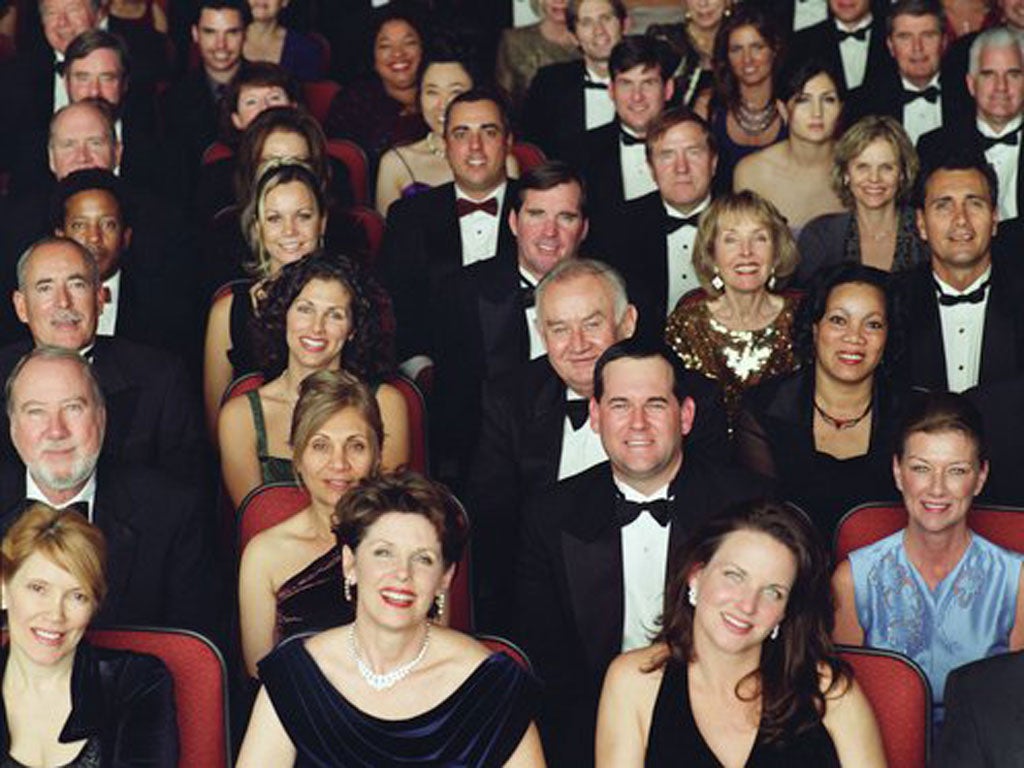David Lister: The little niggles keeping the arts from entering an Elizabethan golden age
The week in arts


Your support helps us to tell the story
From reproductive rights to climate change to Big Tech, The Independent is on the ground when the story is developing. Whether it's investigating the financials of Elon Musk's pro-Trump PAC or producing our latest documentary, 'The A Word', which shines a light on the American women fighting for reproductive rights, we know how important it is to parse out the facts from the messaging.
At such a critical moment in US history, we need reporters on the ground. Your donation allows us to keep sending journalists to speak to both sides of the story.
The Independent is trusted by Americans across the entire political spectrum. And unlike many other quality news outlets, we choose not to lock Americans out of our reporting and analysis with paywalls. We believe quality journalism should be available to everyone, paid for by those who can afford it.
Your support makes all the difference.On Wednesday night I joined the great, the good and the odd crafty ligger at the Royal Academy, where the Queen hosted a celebration for the arts. I'm with Her Majesty on this one. There's quite a lot to celebrate. As a look at the cultural fare in the London 2012 festival, detailed in this issue, shows, you can't move for arts this summer. Sport, slightly bizarrely in Olympics year, has become a brief interlude in the weeks and weeks and weeks of Cultural Olympiad shows, exhibitions and mini-festivals that owe their existence to the Olympics. They grew out of the Games, and are almost devouring them.
Add to this the queues and acclaim there have been for events such as the Leonardo and Hockney exhibitions, Barenboim at the Royal Festival Hall, stunning new plays and young playwrights at the Royal Court, and innovations around the country, from a new gallery in Margate to comedy on the Brighton Festival Fringe, to the growing success of places like the Baltic and Sage in Gateshead. One could go on and on, and point out that for the first time in years, if one wants biting satire on the Government or on ourselves, one looks these days not to political cartoons, but to plays like Laura Wade's Posh or Mike Bartlett's Love Love Love.
That's just the smallest snapshot, but it quickly becomes clear why many say we are going through a golden age in the arts. However, had the Queen and I bumped into each other in the Royal Academy's corridors for a chat, I would have said to her that, while there is an awful lot to celebrate – and keep the parties coming – the golden age isn't quite what it seems.
Take those queues, for a start. They are too often full of the same people. Young audiences are still too infrequently encountered at theatre, opera and classical music, and genuinely multi-ethnic audiences remain, despite initiative after initiative, depressingly rare. And the middle classes still dominate.
It would probably be vulgar to mention price to the Queen, but for many the arts, from rock gigs to musicals, plays to exhibitions, are priced too highly, and £200 plus for some tickets at famous and publicly subsidised institutions is faintly obscene. Booking fees, which she alone in her nation may not have encountered, continue to irritate the hell out of her subjects.
She, as an inveterate traveller, might share my concern that the arts are too London-centric, and there is a lack of touring by some of our biggest London-based companies. But I wouldn't want to bore her with the turmoil that the music industry finds itself in over piracy and the decline in conventional CD sales, partly because it is boring, partly because no one knows the answer.
She, I suspect, would point out that most of these problems are solvable, with more forward thinking, less greed, and a more egalitarian attitude in the arts. And they should not obscure the astonishing breadth and quality of artistic activity currently taking place. But neither should they be ignored, even in a year of celebration. Had we chatted, we would I'm sure have ended up agreeing that, for the arts, this is indeed almost a golden age. Almost.
The future's bright, thanks to Orange
Orange has ended its sponsorship of the prize for fiction written by a woman. The prize has, over the years, given us many fine books and discovered and re-discovered many authors. Its organisers are looking for a new sponsor. They shouldn't. Their battle is won. The bestseller list features women just as much as it does men, and it is absurd to claim any more that women do not get a look-in when it comes to fiction. The organisers should make this year the last. Orange, meanwhile, should give its name and money, to a prize for female film directors, where there is a genuine battle to be fought.
Now let's have a fly on the DG's wall
The BBC is broadcasting another fly-on-the-wall documentary on an arts company, or in this case, companies. It has invited former South Bank Centre chief executive Michael Lynch to be a troubleshooter at various troubled places. In the past, the Beeb has broadcast such docs on the Royal Opera House and English National Ballet, But one venerable institution seems to escape this treatment – the BBC. That's strange. The BBC is an enormously important broadcaster of arts programmes. Surely it should turn its cameras on itself, its programming meetings, its pay negotiations with actors, directors and chat-show hosts. I can't think what it's afraid of.
Join our commenting forum
Join thought-provoking conversations, follow other Independent readers and see their replies
Comments